Taking on your own allotment for the first time and feeling a little overwhelmed? We're here to help with our top tips!
Are you taking on your own allotment? Firstly, congratulations! Owning an allotment is a fantastic opportunity and hobby and we’re sure you won’t regret it. Among the excitement of owning your first allotment, you might be feeling a little overwhelmed and wondering where on earth to begin. It can feel a bit scary at first but just like everything else it just takes time and you’ll soon be into the swing of it.
To help you along the way, we’ve rounded up our top tips for creating your own allotment. Are you ready to get your hands dirty? We hope so! Let’s jump right in…
1. Invest in good tools
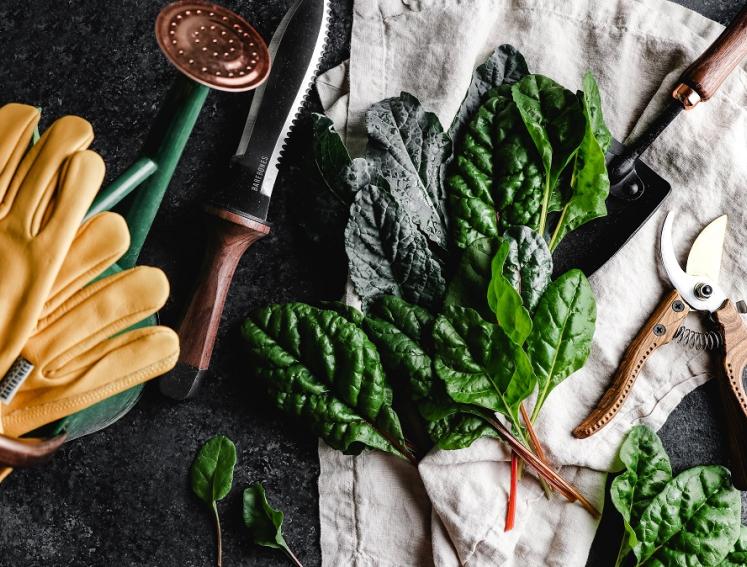
Don’t forget your gloves!
So, you’ve snagged an allotment space and now it’s time to put the hard work in! Well, you’re going to need some tools for that. Invest in quality tools that will see you through many years of allotment fun to come. Begin with the basics including a spade, fork, hand fork, trowel, hoe and rake. Gardening gloves are also an essential, so why not take a trip to the garden centre to get yourself kitted out!
2. Plan your layout
This tip is not the most exciting aspect of owning an allotment but it is an important one, and that’s planning your layout. Consider how you can best make use of your space and plan the various different sections you want to have. Our top tip? Sketch it out so you can better visualise what you want to achieve and have a plan of action in place.
3. Have a big clearout
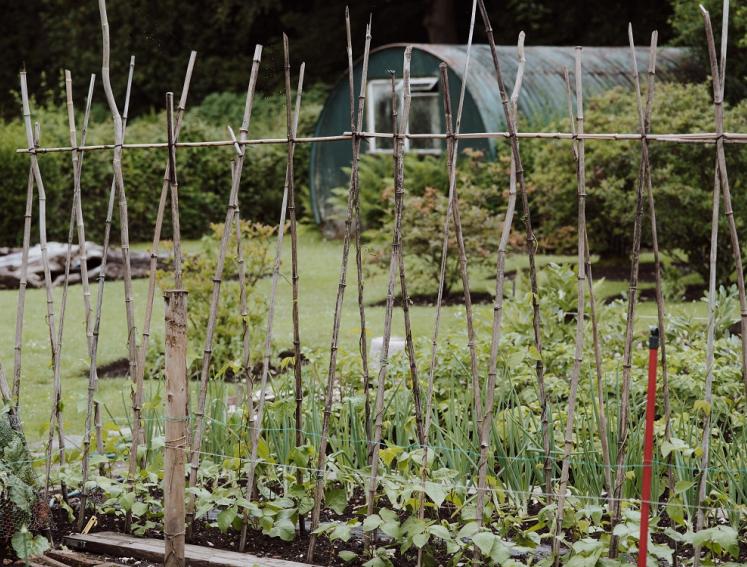
Time to get your hands dirty!
Now that you’ve got your tools and planned your layout, it’s time to actually get your hands dirty and get involved. The first step you’ll want to take is to give your space a good clearout. The likelihood is (unless you’re lucky) the space you’re about to take over will be overgrown and in need of a little TLC. It’s all part of the fun so grab your fork and get tackling those weeds, and clear away any unwanted materials, waste and debris. You may also need to cut down trees and shrubs! Before you start though, you may need to ask if your council collects the waste or whether you will need to sort this out yourself. If it’s a do-it-yourself job, be sure to put any clippings in a compost bin. Overgrown grass? Try to steer away from the temptation to cut it down, long grass is a vital natural habitat for wildlife.
4. Start making spaces
5. Consider creating a shelter
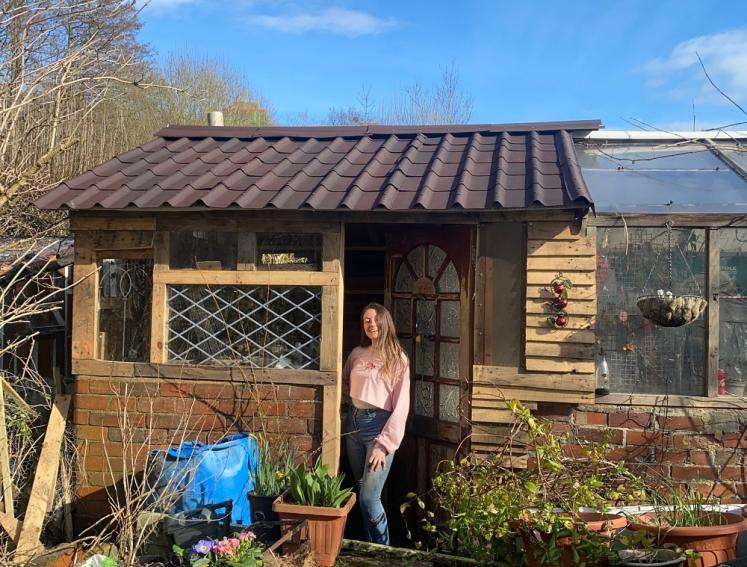
Make sure it’s weatherproof!
If your allotment doesn’t have a small outbuilding or shed then creating one might be a worthwhile investment! Just check out Danni from Plot 81’s fabulous allotment building. Danni gave her existing structure a complete makeover with our ONDUVILLA roofing which has totally transformed this building from drab to FAB. It’s the perfect storage space for housing all of her tools and materials.
Our roofing sheets are ideal for all types of structures from small - our EASYLINE sheets are great for small projects - right up to large outbuildings. They’re lightweight, easy to install and require no specialist tools, and they’ll ensure all of your tools stay dry thanks to our waterproof guarantee. Check out Danni’s installation here!
6. Start with easy veg
When you first take over an allotment, it’s easy to get ahead of yourself but start with growing easy, hardy vegetables. Our top tip? Try not to go too crazy and grow a load of different vegetables, as not only will they all take up valuable space but you’ll need a lot of time meeting all of their individual needs. Instead, be selective with what you grow and choose a small handful of vegetables. This will save you time but also allow you the space to grow decent quantities of each. Potatoes, broad beans, courgettes and garlic are great for newbies and it won’t be long until you’re enjoying the fruits of your labour.
7. Consider seasonality
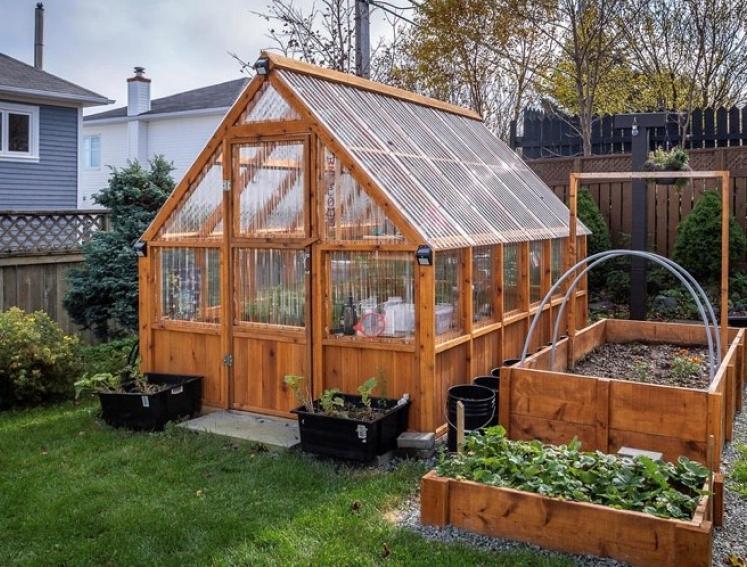
And the unpredictable UK weather!
Here in the UK we’re used to pretty harsh winters but the good news is you can still grow during the colder months! Peas, garlic and winter broad beans are ideal for the winter season or if you have a greenhouse on your allotment, you could also look into growing spinach, kale, Brussel sprouts and winter lettuce. Don’t forget some of what you sow in the summertime won’t be ready for harvest until the winter. Don’t go hungry, it could be a worthwhile idea to make yourself a calendar so you know what to sow when, and to ensure you have a year-round crop to feast upon. If a greenhouse is something you’re considering, our range of plastic sheets is simply perfect for building your own growing room!
8. Plan your harvest
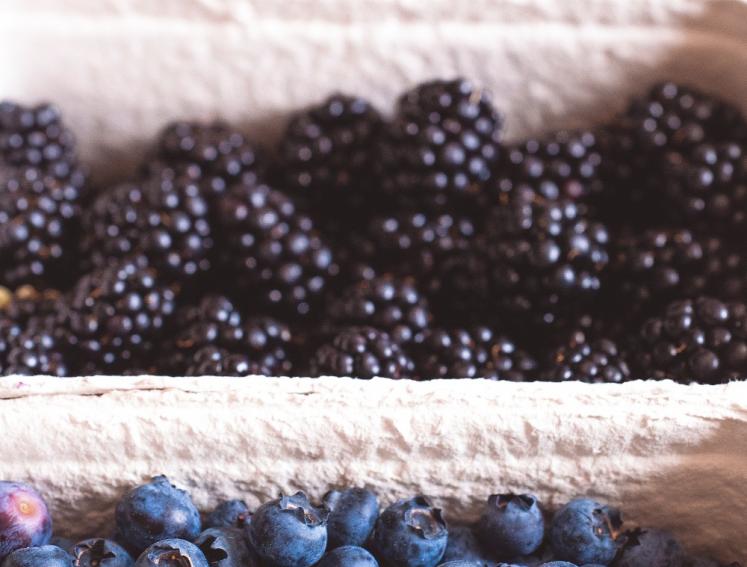
Consider upping your allotment visits
It’s one thing sowing your seeds and nurturing your veggies but don’t forget the harvesting too! It may be a little trickier than you think especially if you only have the time to visit your allotment once a week. For example, on Monday your strawberries may look almost ready but by Sunday they might have already seen better days. This is why during harvest time you may need to up your allotment visits. Plan how and when you’re going to pick, store and consume your homegrown goodness so that you don’t see your hard work going to waste. Literally. Freezing your homegrown fruit and veggies will help to make them last longer and don’t forget to compost any unwanted or off produce ;)
9. Get to know your neighbours
A big part of owning an allotment is the community it comes with so don’t be shy, get to know your neighbours! You’ll likely share common interests with your fellow allotmenteers, so strike up a conversation, offer them a cup of tea and get involved. They may also be able to offer you help and advice as a new starter and perhaps offer you some of their cuttings too. There’s also a big allotment community on Instagram so if you spend a lot of time on social it might be worth connecting with allotment accounts that you can pick up tips and tricks from.
10. Sit back and enjoy
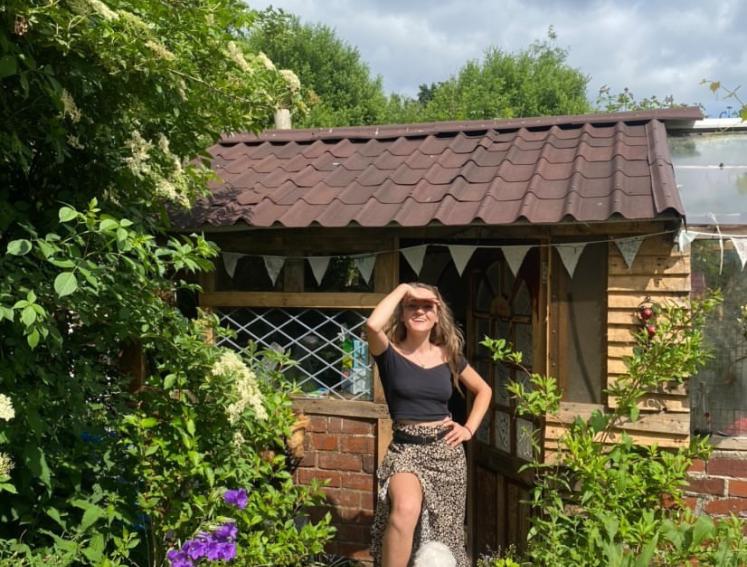
Remember it is fun!
Yes, owning an allotment is hard work, but it's also a fun, extremely rewarding and healthy hobby so don’t forget to enjoy it! According to studies, allotment gardening is great for boosting mental health and self-esteem. There’s never been a better time to connect with nature and find a new passion, so get your hands dirty and stuck into the allotment lifestyle.
Ready to start your allotment project? Our roofing can be purchased via our eShop as well as select ranges available at Amazon, Wickes and The Range.
Discover the full range at onduline.co.uk.